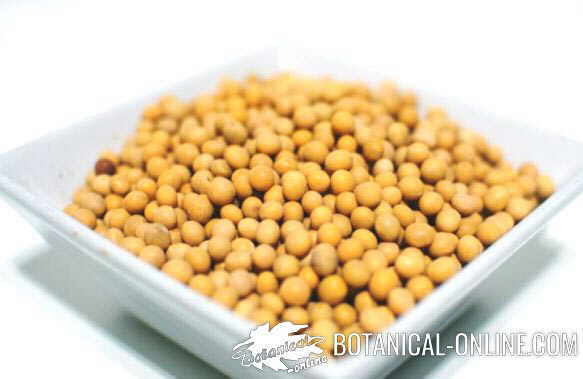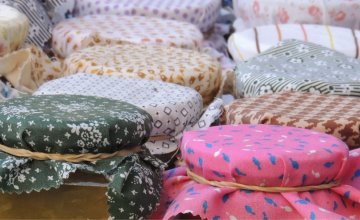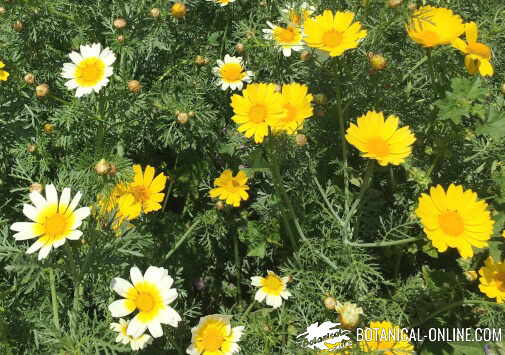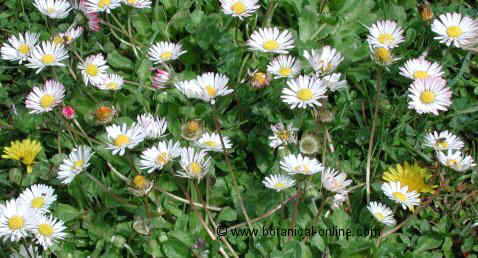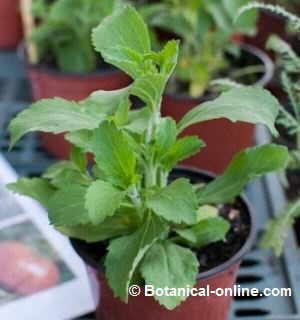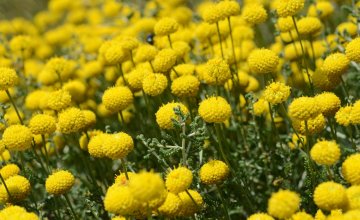Contents
- 1 Curative properties of clove
- 1.1 CLOVE AS A MEDICINAL PLANT
- 1.2 History of clove
- 1.3 When was clove used in Europe?
- 1.4 Traditional uses of clove in East
- 1.5 Most important medicinal uses today
- 1.6 INTERNAL USE PREPARATIONS WITH CLOVE
- 1.7 Clove to treat digestive diseases
- 1.8 Clove for respiratory diseases
- 1.9 Other medicinal uses of clove:
- 1.10 EXTERNAL USE PREPARATIONS WITH CLOVE
- 1.11 NON MEDICINAL USES OF CLOVE
- 1.12 Clove as a spice
- 1.13 Oil of clove in the industry
- 1.14 Can clove be dangerous for health?
- 1.15 How to store and preserve clove
Curative properties of clove
CLOVE AS A MEDICINAL PLANT
History of clove
The use of clove is very old. It is known that in the year 266 BC the Chinese army officers used this spice to combat halitosis or bad odor, especially prior to the interviews with the emperor. Probably clove had already been used some 2500 years ago in the Han dynasty.
In fact, this tree had very little importance to the inhabitants of the Moluccas until some Chinese ships came to the island and transported some plants to China, including this tree. Then China was the country that began shipping the species in other parts of Asia, including Persia, India and Arabia.
The Egyptians must have known it quite well since there have been found necklaces made with cloves in some sarcophagi. It is known that the Greeks and Romans did not use it too much, but it seems that if they knew it as this spice is mentioned in the descriptions of Aegineta Paulus, a Greek physician of the seventh century, as food and medicine.
It also had to be brought the Arab merchants. Serapion and Avicenna, two Arab physicists, mentioned it as Carunfel and Charumfel bellum, respectively.
When was clove used in Europe?
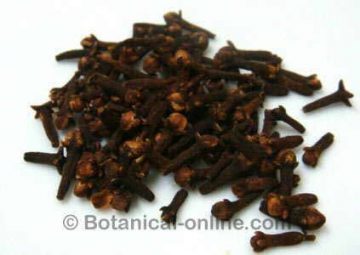
However, in Europe its use was quite late and it appears that only began to be used in the V century AD.
It was at the beginning of 1511 when the Portuguese discovered the Moluccas, when clove began to be used as a popular spice in Europe.
The first scientific descriptions of this tree were made by the Italian historian Pigafetta who was in the expedition of Ferdinand Magellan.
Later the Dutch expelled the Portuguese from these islands (See “Spice trade“) and gained a monopoly on this and other spices. To have the exclusive monopoly they burned trees throughout the islands, except Ambon and other small ones and forced the natives to have commerce with them only. This decision led to a revolt of the natives, which would lead to the future expulsion of the Dutch from these colonies.
In the year 1769 M Poivre, mayor of the islands, ordered a couple of ships to go to the island of Mauritius and Bourbon (now Reunion) with seeds of cloves and other spices, which have adapted very well. From this island it was extended to Martinique, Trinidad, and from these islands, to most of places where it currently grows.
William Jackson Hooker (1785-1865), professor of botany at the University of Glasgow, speaks at the Curtis Botanical Magazine about this tree:
| “The Uses of Cloves are sufficiently known, especially in the national economy as a seasoning in various dishes and to flavor wines and alcoholic beverages. In medicine, are valued tonics and stimulants, which powerfully stimulate the muscle fibers, but dangerous for bilious people, and those of sanguine temperament. These properties, its acrid and burning taste, depend on the essential oil, which is acquired by distillation, and is hot and caustic, and, therefore, used in healing of toothaches and other diseases, and by perfumers. Cloves are set to manually, or beaten with rods, so they fall on canvas placed under the tree, and dried by fire, or, even better, the sun fully ripes berries that are preserved in sugar, and eaten after dinner to promote digestion.” |
Traditional uses of clove in East
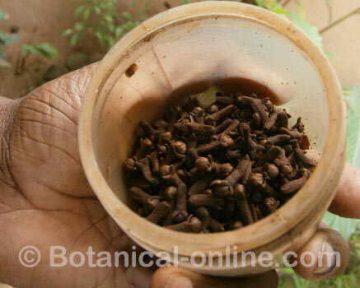
Clove has been and continues to have a capital importance as a natural remedy in oriental medicine. Since immemorial times it has been used in Southeast Asia as a natural remedy to combat many diseases and as an anesthetic to remove the pain.
Its antiseptic properties have become a major antiseptic and it is used widely in the area today as one of the major natural resources to combat infectious diseases such as malaria, tuberculosis and cholera. It is also used to eliminate many internal and external parasites such as intestinal worms or scabies. Other skin diseases caused by fungi or injuries are treated with this spice.
It is also very important for these people using clove in the treatment of intestinal problems such as vomiting, dizziness, diarrhea, abdominal bloating and other bowel problems that are very common in these regions.
Other times, it has given great aphrodisiac properties or has been used to facilitate delivery.
Most important medicinal uses today
At present, there is evidence that the medicinal properties of cloves come from its essential oil. The essential oil comes from the distillation of flower buds in water. This provides the essential oil, mainly rich in eugenol, a phenolic derivative with formula C 10 H 12 O 2 that appears on cloves at a rate of 60 to 90%.
Clove essential oil is a yellow liquid and a strong odor, spicy, commonly known as “the smell of clove.” It is said that the taste is hot, intense, fresh, with a peppery taste and a touch of oriental fragrance. Not soluble in water but if that can be dissolved in alcohol.
Eugenol is not exclusive of this plant, although it is the one with the greatest concentration. Other very rich plants in this component are by order of importance: allspice (Pimenta dioica), the Indian pepper or betel nut (Piper betel), basil (Ocimum basilicum), the seeds of carrot (Daucus carota), cinnamon (Cinnamomum verum), laurel (Laurus nobilis), marjoram (Origanum majorana), hyssop (Hyssopus officinalis), pennyroyal (Mentha pulegium), nutmeg (Myristica fragrans) or lavender (Lavandula latifolia)
Among the many properties of this component we can say that it is antiplatelet, anti-edemas, anti-vomiting, carminative, antacid, antioxidant, gastroprotective, gastroregenerative, antibacterial, antifungal, antiseptic, antiviral, herbicide, pesticide, insecticide, insect-repellent, vermifuge, anesthetic, sedative, fragrant and flavoring properties.
In natural medicine, many of these properties have been used to remedy many diseases. Among the main virtues there is its ability to eliminate pain and inflammation, which occurs because this component inhibits nerve transmission between cells and the synthesis of prostaglandins. Among all we can mention the following:
INTERNAL USE PREPARATIONS WITH CLOVE
Clove to treat digestive diseases
Digestive system: The digestive properties of this spice are used to treat the following diseases of the digestive system:
- Aerophagia: Clove oil is used to alleviate the gas or accumulated flatulence problems in the digestive tract.(Infusion of one to three drops of oil of cloves sales in pharmacies and health food stores a glass of hot water. Drinking three cups a day) (15 minutes infusion of a spoonful of cloves per liter of water. Take three glasses a day after the main meals)
- Difficult digestions: Its components allow you to stimulate gastric acid and promote the disintegration of food which aids digestion. (Make an infusion of the plant, sold in pharmacies or herbalists, in a liter of water 15g / l. Drink a glass after main meals)
- Lack of appetite: Nail, like cinnamon, for its aroma stimulates digestion so special getting an appetite to be appropriate in cases of loss of appetite or anorexia. (A couple of drops of oil of cloves dissolved in a glass of water, sweetened with honey, half hour before eating)
- Vomits and dizziness: Clove has been one of the most used resources in traditional Indian medicine to treat vomiting and dizziness, including travel sickness. (A couple of drops of oil of cloves dissolved in a glass of water, sweetened with honey, half an hour before eating or before taking a trip)
- Diarrhea in travel: Clove is rich in astringent properties. Traditionally it has been used to stop diarrhea, especially that which occurs in travel (Follow the previous treatment)
- Intestinal Worms: Clove has been extensively used as a vermifuge to expel intestinal worms. (Infusion for 15 minutes of a clove spoonful per liter of water. Take three glasses a day between meals)
Clove for respiratory diseases
– Respiratory Diseases: Clove has expectorant, antibacterial and anti-inflammatory properties, reason why it constitutes a good remedy in the treatment of the more common respiratory anomalies. Among all of them we can mention:
- Bronchitis: Clove is a good expectorant and antiinflammatory, which can be used to reduce inflammation of the bronchi and expel mucus. (15 minutes infusion of a spoonful of cloves per liter of water. (Drink three glasses a day)
- Colds: This spice may help improve cold symptoms (A couple of drops of oil of cloves dissolved in a glass of water hot, sweetened with honey. Drink two or three glasses a day)
- Cough: Due to the antitussive properties of the previous preparation with oil of cloves, it helps to reduce coughing.
- Altitude sickness: It also appears as an important contribution to eliminating altitude sickness, which are unpleasant sensations that occur when you ascend many feet above sea level. The infusion of clove is one of the best remedies for altitude sickness, and it can help climbers, skiers, sportsmen and tourists to breathe easier when climbing mountains or just when people go hiking in the mountains. (15 minutes infusion of a spoonful of cloves per liter of water. (Drink three glasses a day)
– Tobacco addiction?: Clove is used to make cigarettes to help quit smoking. In Indonesia, the world’s largest producer of this spice, clove is not used practically in the kitchen but as a herb to enhance the aroma of tobacco, which gives it a very particular aroma. Most public places in this country have the aroma of cloves constantly.
Nevertheless, as the American Lung Association warns, smoking cigarettes made from this plant is even more harmful than smoking tobacco, as the smoke from clove is more carcinogenic. In addition, this spice dries in excess the throat of smokers, forcing them to inhale more strongly.
Other medicinal uses of clove:
It was found that this plant is suitable for the treatment of other anomalies:
- Stimulant
- Modifier of the flavor: The essential oil of clove is used in combination with other medicinal preparations to modify their flavor and scent.
- Tooth decay: Clove oil combined with zinc oxide, forms a compound called zinc eugenolate, a kind of paste that is used by dentists to fill gaps caused by dental caries and in many dental applications, such as pain reliever, anesthetic, antiseptic for the mouth.
EXTERNAL USE PREPARATIONS WITH CLOVE
Used externally, the wealth in eugenol of its essential oil is very important as an antibacterial, antifungal and antiseptic, to the extent that it has been seen in studies in vitro that its disinfecting power is three times higher than phenol.
It has also been proved its great power to eliminate fungus and bacteria which can cause infections in the skin. The main applications are the following:
- Vaginal Infections: It is able to eliminate the infections of the vagina, especially those caused by Candida albicans. (Make a vaginal washing with the resulting liquid of adding a few drops of essential oil in a liter of water)
- Sore throat: In case of sore throat with pus and swelling, you should do gargle with the liquid above.
- Fungi in the feet and nails: These same properties are useful in treating foot fungi, especially in the socalled athlete’s foot and nail fungus. (Wash the affected area with gauze impregnated with the liquid from the infusion of 2% of cloves in a liter of water)
- Injuries: The antiseptic properties of eugenol with its wealth in tannins, play a healing role in accelerating the healing of wounds or stopping the bleeding; they are adequate for the treatment of wounds. (Wash the wound with gauze impregnated with the liquid from the infusion of 2% of cloves in a liter of water)
- Mouth ulcers: In case of mouth ulcers, one can perform mouthwashes with the previous preparation.
- Toothache: The anesthetic capacity of eugenol is used to numb the pain of toothache. (Apply a drop of essential oil dissolved in a piece of cloth or gauze on the tooth causing the pain. Ensure that the liquid does not touch the gums or other side of the mouth to keep them from burning.)
NON MEDICINAL USES OF CLOVE
Besides its medicinal uses, we have to emphasize other very important uses:
Clove as a spice
As a spice it is used abundantly in the kitchen for the preparation of pies, vegetable cakes, sauces, purees, meats (See more information on “clove as a spice”.)
Oil of clove in the industry
Industrially the leaf essential oil is mainly used, which contains between 82 and 88% of eugenol. This is obtained by distilling the leaves with water. It is of a dark brown color and smells of burning wood.
The food industry uses it for adding flavor to prepared foods, alcoholic beverages and other soft drinks.
It is also used for the production of paints, inks, adhesives, etc.
Its wealth in aroma makes it very suitable fragrances in the perfume industry, being used in the manufacture of perfumes, soaps, shampoos, etc. The oil combines perfectly with other plant oils such as sage, allspice, lavender, bergamot, rose, ylang-ylang and vanilla.
Eugenol from clove is used in some parts of the world as an anesthetic to catch fish.
Can clove be dangerous for health?
Used in the suitable proportion, eugenol is a very useful component. When it is used in amounts superiors to the allowed ones, it becomes a powerful poison. For that reason the essential oil of the plants that contain this principle in aromatherapy must be always used diluted in a ratio less than 1%.
The essential oil that contains eugenol, if it is applied on the skin for a very long time, can produce burns, dermatitis or sores.
Improper internal use of this oil can cause severe damage to body organs and even death. In high doses affects the nervous system, resulting neurotoxic. An excessively high internal dose formulations of clove can cause serious stomach pains.
Some people present allergic reactions to eugenol reason why, if they have not used clove previously, they should begin with very low doses,
It is absolutely contraindicated for children under age 6, for pregnant women or suckling babies and for any patient of gastritis, gastroduodenal ulcer, Crohn’s disease, irritable bowel syndrome, ulcerative colitis, liver diseases, respiratory allergies, Parkinson’s disease, epilepsy or other diseases.
Smoking clove cigarettes to help quit smoking is even more harmful than smoking tobacco. Many clove smokers suffer serious lung problems and bloody sputum.
How to store and preserve clove
Clove should be stored in tightly closed containers in a cool, dry place protected from light.
![]() More information on cloves.
More information on cloves.

